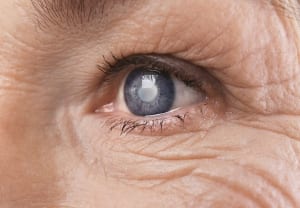 Ophthalmologists at Herzliya Medical Center carry out cataract treatment in Israel. The best doctors in Israel advise patients and carry out the most advanced treatments available. The modern technological resources utilized at the hospital in Israel provide highly efficient ophthalmic surgery options to patients, including cataract surgery, with minimal risk of complications.
Ophthalmologists at Herzliya Medical Center carry out cataract treatment in Israel. The best doctors in Israel advise patients and carry out the most advanced treatments available. The modern technological resources utilized at the hospital in Israel provide highly efficient ophthalmic surgery options to patients, including cataract surgery, with minimal risk of complications.
What is a Cataract?
A cataract is a condition that reduces the transparency of the lens of the eye. The function of the natural lens is to aid the focus of the image on the retina. Clouding of the lens (cataracts) reduces the eye’s ability to absorb light, leading to disruption of visual acuity and may lead to complete loss of vision. Bilateral cataracts that are undiagnosed and/or inadequately treated are among the most common causes of blindness among the elderly.
Causes of Cataracts
Cataracts are classified by the cause of onset and degree of cataract turbidity. The main causes of cataracts include:
- Age-related – With age, processes that age protein structures of the eye lead to changes of eye element composition
- Secondary trauma – often a result of a penetrative eye injury or a side effect of surgical procedures. Serious inflammatory or infectious diseases also may cause secondary damage to the lens
- Metabolic diseases –diabetes, for example, as well as other endocrine disorders or suffering from Iatrogenic processes (e.g., side-effects of long-term steroid use)
- The manifestation of an autoimmune disease
- Exposure to ionized and/or ultraviolet radiation
- Congenital changes in the protein structure of the lens
Cataract Symptoms
Cataract symptoms develop gradually and threaten damaging irreversible changes in protein structures of the lens. In early stages, symptoms often appear negligible; however, medical attention must be sought if the patient experiences a decrease in visual acuity that is unresolved by glasses or contact lenses, reduced perception of brightness and contrast, color failure, and significant deterioration of night vision ability. Symptoms are more pronounced in one-sided cataract, which allows patients to feel the difference between the cataract-affected and the healthy eye. The progression of the symptoms of cataracts leads to a drastic reduction in the functional ability of the eye.
Diagnosis of Cataracts
Diagnosis is based on a thorough examination of the eye and evaluation of associated symptoms. The most apparent indicator of cataract is lacking transparency of the lens. Ophthalmology specialists at Herzliya Medical Center work to efficiently establish cataract diagnosis by identifying causes of the disease that are of utmost importance in cases of secondary or systemic onset. To attain a precise diagnosis, Ophthalmologists closely guide patients through additional examination if necessary, carried out by a multi-disciplinary team of clinicians to provide comprehensive screening in a very short time.
Cataract Treatment at HMC
Conservative cataract treatment helps to slow the progression of the disease, but cannot resolve damage to vision or halt the progression of the disease completely. Cataract surgery in Israel is among the safest and most effective treatment options available. At Herzliya Medical Center, a variety of contemporary techniques for cataract surgery is offered to patients, according to their needs. The most recent developments in the field of Ophthalmic surgery are incorporated into procedures using the most advanced technologies, allowing patients access to be treated within a single day at the hospital.
Cataract surgery works to effectively:
- Remove clouding of the lens
- Implantation artificial lenses
In most cases, cataracts do not involve the dense fibrous capsule of the eye; in this case, it is during the implantation of an artificial lens. This procedure preserves the natural integrity and regulation of refractive power to facilitate further optical correction.
Cataract surgery is usually performed under local anesthesia and the period of sedation is short. The procedure lasts only 30 minutes.
At Herzliya Medical Center, the private hospital provides a beautiful setting and excellent conditions for outpatient treatment following cataract surgery in Israel. Highly professional staff provide superior quality of medical care and use an individual approach to serve patients from around the world and gain back their sight while working to prevent any complications.
 Patients Log In
Patients Log In 










